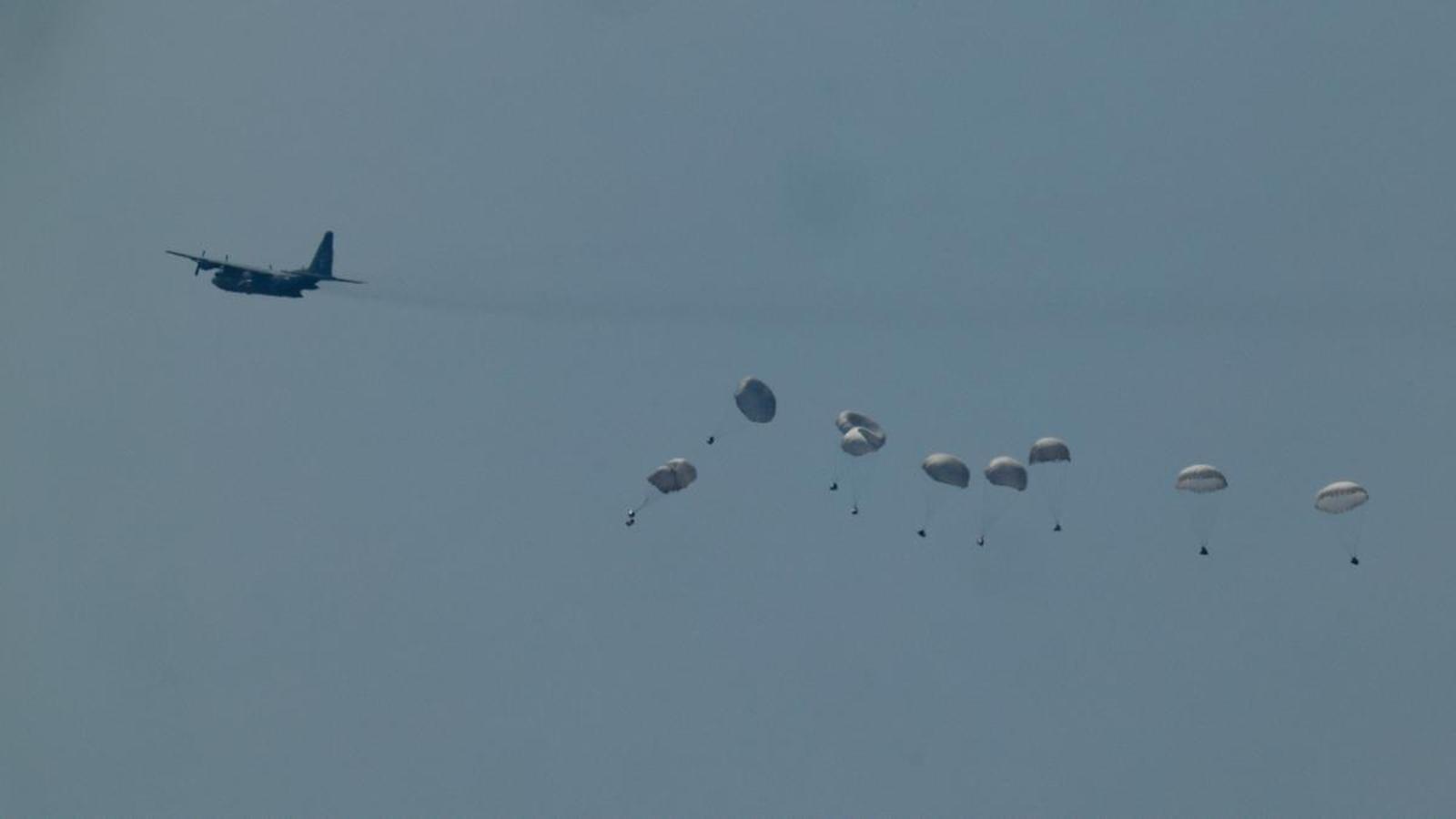Why is it not a good idea to parachute food into Gaza?
The UN and Doctors Without Borders condemn the mechanism as "ineffective and dangerous" and call it a "smokescreen."


BarcelonaSpain, France, Germany, and the United Kingdom have joined the initiative of Jordan and the United Arab Emirates to launch food packages in the Gaza Strip. In the face of international criticism for the hunger crisis caused by Israel In Gaza, Tel Aviv has authorized these airdrops during the "humanitarian pauses" it committed to on Sunday. "The only real solution is a ceasefire, the release of the hostages, and Israel opening the borders to allow in the 10,000 trucks with humanitarian aid that are blocked in Egypt," Ricardo Martínez, logistics advisor for the Emergency Unit of Médecins Sans Front, told ARA. In the current situation in the Strip, where Israel has forcibly displaced two million Gazans and concentrated them in 12% of the territory, indiscriminate airdrops will endanger many lives. "It causes them to kill each other in one case, and in the other, exposes them to Israeli attacks: it's making people risk their lives for a packet of cookies," the aid worker concludes. He insists: "Parachuting food doesn't help at all; on the contrary."
From the center of the Strip, Ara himself witnessed one of those packages fall unchecked yesterday. He opens a group of people. Flying over the sky of Gaza, which is full of warplanes, they could also convince him to bring aid through the border crossings.
Kamal Abusalama, a Palestinian displaced from the north of the Strip to Gaza City, warns that this is already happening: food packages have been dropped in the areas where they have been dropped. "They throw the aid in areas classified as red, where civilians cannot approach and if they do, they are shot," he explains to ARA. Gaza, which we have seen for months with the thousand Palestinians killed when they approached the food distribution points of the Gaza Humanitarian Foundation (GHF, the acronym that comes from the name in English) managed by American mercenary companies with the approval of Israel.
The UN has also condemned the airdrops and warned that "they cannot reverse the growing hunger" and that, in fact, they can do more harm than good: "They are expensive, inefficient and can even kill starving civilians," warned Philippe Lazdesini, a Palestinian refugee. Airdropping aid from planes with parachutes can create a shocking image in the public eye, but on the ground, they will not change the desperate situation of the Palestinians one bit. And the governments that have presented the initiative as the last desperate option to alleviate hunger in Gaza know this well.
Ridiculous amounts
On Sunday, the United Arab Emirates and Jordan dropped 25 tons of aid to Gaza, less than a single truck could carry. However, according to the UN, Gaza needs about 600 trucks a day just to begin helping the population recover from the famine, which, according to Gaza health authorities, has already killed 147 Palestinians in Gaza, including 87 children, most of them in the last three weeks.
Last spring, the ineffectiveness and danger of parachute drops were already proven. A very gallant result that led to the abandonment of the mechanism: on March 8, in the Al Shati refugee camp in Gaza City, five Palestinians were killed and a dozen injured by a package that fell without the parachute opening (an accident that was repeated this Sunday when a stick fell directly onto a medical area). Other packages fall into the sea: on March 26, 2024, twelve people drowned in Gaza trying to collect food in the water, which, in addition, now It is another firing zone since Israel banned Palestinians from approaching the sea a few weeks ago..
The MSF logistician points out that parachute aid drops only make sense in situations where it's physically impossible to access small communities isolated by natural disasters by land, as the NGO did during the 2019 Mozambique floods or the earthquake in Turkey. "We're trying to bring water and buy time until we can properly reach them, which is by ground. We did it with helicopters and after contacting the communities. Airdropping aid for two million people is absolutely useless," says Martínez. He also points out that in this case, the barrier isn't natural, but human, and what governments should do is pressure Israel to stop blocking aid, which is non-negotiable under international law.
